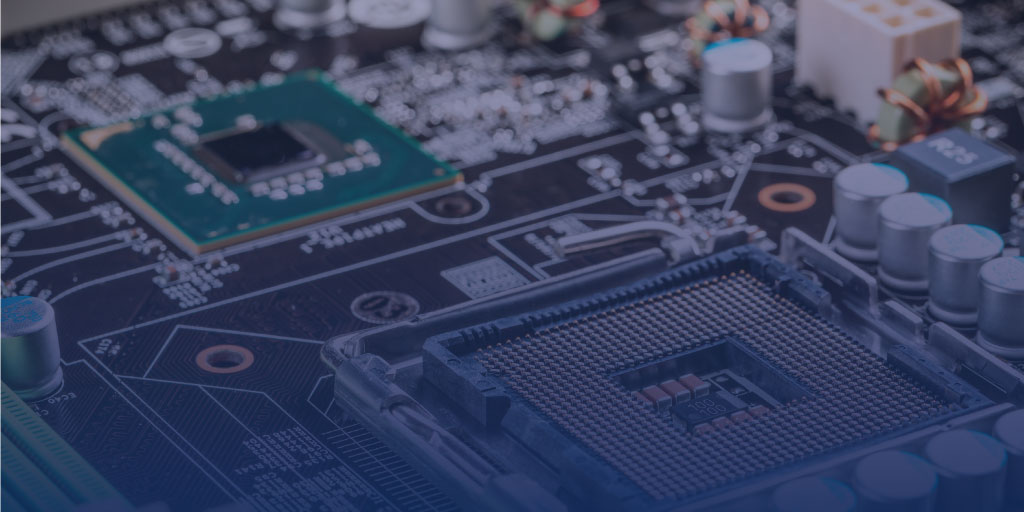Even as the pandemic surges, manufacturers in the advanced electronics industry need to be looking at strategies to rebound and recover. Here are a few priorities that they should put on the agenda.
The advanced electronics sector has been hit hard by COVID-19. While assessing post-COVID business, automotive and industrial manufacturers must think creatively about growth, innovation, and supply chain strategies. In the past year, many have resisted investing in these areas, but that’s going to have to change for the sake of survival.
“The experience over this year has shown it is certainly different, but I take that as a positive learning point,” Kurt Sievers, president and CEO of NXP Semiconductors, told EETimes. “Things will never go back a 100% to what it was before the pandemic. We have learned how to achieve the same results or be more productive. It’s a change which we will learn from.”
Advanced electronics worries
The pandemic has impacted the advanced electronics sector across the globe in both expected and unexpected ways. OEMs and parts suppliers have yet to return to full production capacity, according to a ResearchAndMarkets.com report, “Impact of COVID-19 on the World’s Automotive Industry, 2020.” The report points to a range of potential consequences, including:
- Delayed new product launches
- Shattered supply chains
- Financially drained small and mid-sized businesses
- Dampened sales
- Unfulfilled order deliveries
Although no one knows the exact impact, most agree that COVID-19 will leave a lasting mark. A recent PwC survey of professionals in the automotive sector found they share broad areas of concern, such as:
- Financial impact (71%)
- Potential global recession (64%)
- Workforce/ reduction in productivity (41%)
- Decrease in consumer confidence (40%)
- Supply chain disruptions (23%)
These concerns are well founded. The procurement of certain key electronic components is already becoming more difficult. For example, global eight-inch foundry utilization rates are reaching capacity, which has some semiconductor companies raising prices by 10% to 20%, according to Business Korea. Advanced electronics manufacturers, then, need to think beyond the current market to consider how to mitigate shortages going forward.
Forging ahead
The path forward and the struggle to build greater business strength demands careful consideration of a variety of factors.
“Every aspect of the business model could be subject to change, including the composition of product portfolios, capital expenditures (capex), R&D strategy, demand forecasts, supply-chain footprints, production decisions, and options for mergers and acquisitions (M&A),” McKinsey reported in a recent article.
McKinsey outlines a path to sustainability that includes five stages:
- Resolve: As a base, organizations must consider how to address the immediate challenges caused by the pandemic with respect to its workforce, customers, and business partners. The organization should measure the scale, pace, and depth of action required.
- Resilience: During the shutdown, it’s critical to address near-term cash management challenges and other areas that limit flexibility of the organization. A look at past downturns shows that those who survived moved quickly to address productivity, focused on sustaining organic revenue, and thought carefully about which business activities should be abandoned and which should be added.
- Return: For the midterm, organizations should plan how to ramp up manufacturing to return the business to scale seamlessly and quickly as opportunities arise.
- Reimagine: When the pandemic comes to an end, returning to old ways won’t be possible. People will live, work, and use technology differently. Organizations need to plan for a new, emerging normal and consider how the changes create opportunities as well as challenges.
- Reform: Consider and clarify how the new normal will shape the regulatory and competitive environment. Organizations must consider how to detect risks earlier to get a head start on the next business-changing event.
To summarize: The pandemic won’t last forever, but when it’s over, the advanced electronics industry — from supplier to manufacturer — is likely to look different. To thrive, organizations need to start planning for those changes now.
了解更多

